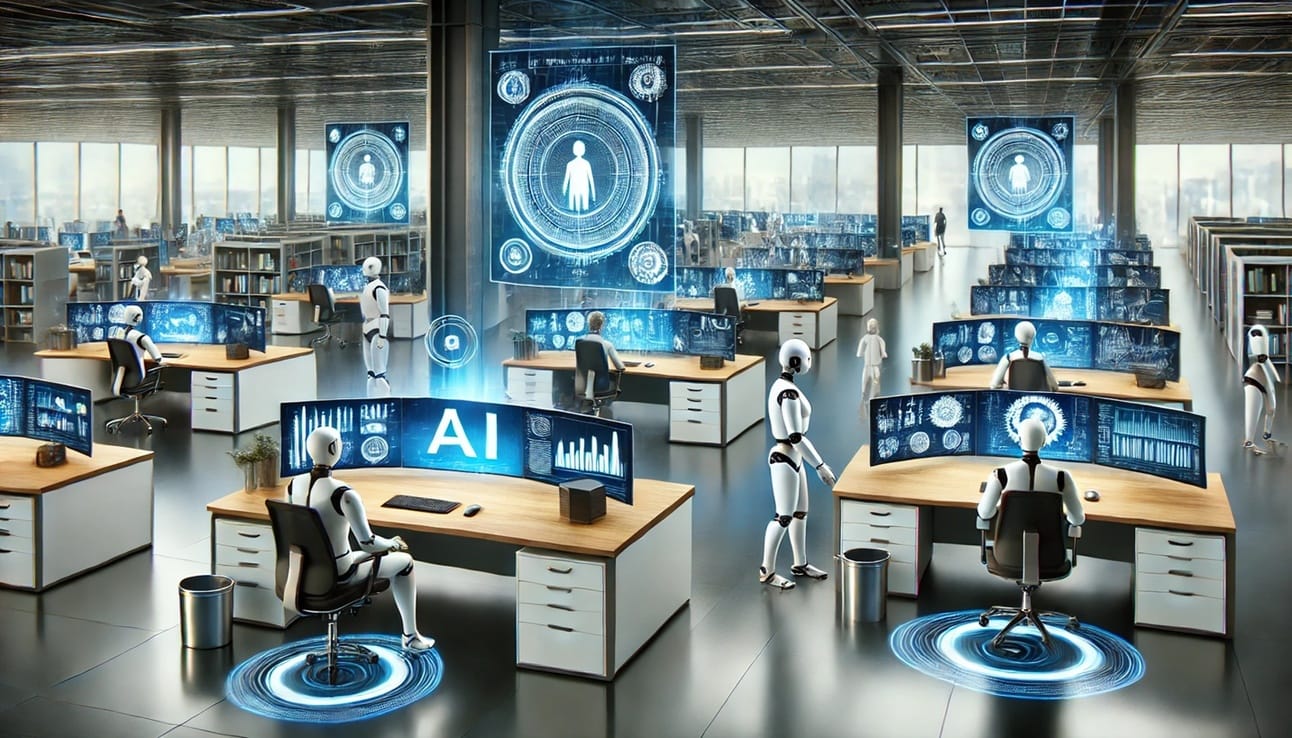
Image Source: ChatGPT-4o
41% of Employers Plan Workforce Cuts by 2030 Due to AI
A World Economic Forum (WEF) survey reveals that 41% of employers globally plan to downsize their workforces by 2030 as artificial intelligence automates tasks.
The findings, detailed in the WEF’s Future of Jobs Report, highlight the transformative impact of AI and other technologies on the labor market. While many roles are expected to decline, a majority of companies aim to reskill and upskill employees to collaborate effectively with AI systems.
Workforce Trends Driven by AI
The survey, which included hundreds of large companies worldwide, found:
41% of employers intend to reduce workforce sizes due to automation.
77% plan to reskill or upskill workers between 2025 and 2030 to adapt to AI-driven changes.
70% are hiring for roles involving AI tool development.
62% aim to recruit talent skilled in collaborating with AI systems.
Fastest-declining roles:
Jobs expected to see the sharpest decline include postal service clerks, executive secretaries, payroll clerks, graphic designers, and legal secretaries. The report notes this shift reflects generative AI’s growing capacity to handle knowledge work.
Balancing Optimism and Job Displacement
The report also emphasizes AI’s potential to complement, rather than entirely replace, human roles:
Generative AI, which can create original text, images, and other content, is reshaping industries while driving demand for human-AI collaboration.
AI may augment human skills by enabling more efficient workflows through “human-machine collaboration.”
Human-centered skills, such as creativity and emotional intelligence, remain essential.
However, the displacement of workers by AI is already occurring. Companies like Dropbox and Duolingo have cited AI advancements as reasons for recent layoffs, showing the tangible impact of these technologies.
Implications for the Future
As AI adoption accelerates, the labor market faces significant disruption. The WEF notes that roles requiring technical expertise, particularly in AI development and enhancement, are on the rise, while traditional administrative and creative positions may diminish.
For businesses: The findings highlight the importance of investing in workforce development to adapt to rapid technological change.
For workers: Staying relevant may require reskilling and learning new AI-related skills, especially as companies prioritize efficiency and automation.
For a deeper dive into the WEF Future of Jobs Report and insights on how AI is projected to create 11 million jobs by 2030, read our related article here.
What This Means
AI’s integration into the workplace is reshaping the global job market. While the technology presents opportunities for innovation and collaboration, its implementation also necessitates proactive efforts to ensure workers can transition into new roles and thrive in an AI-driven economy.
Editor’s Note: This article was created by Alicia Shapiro, CMO of AiNews.com, with writing, image, and idea-generation support from ChatGPT, an AI assistant. However, the final perspective and editorial choices are solely Alicia Shapiro’s. Special thanks to ChatGPT for assistance with research and editorial support in crafting this article.
